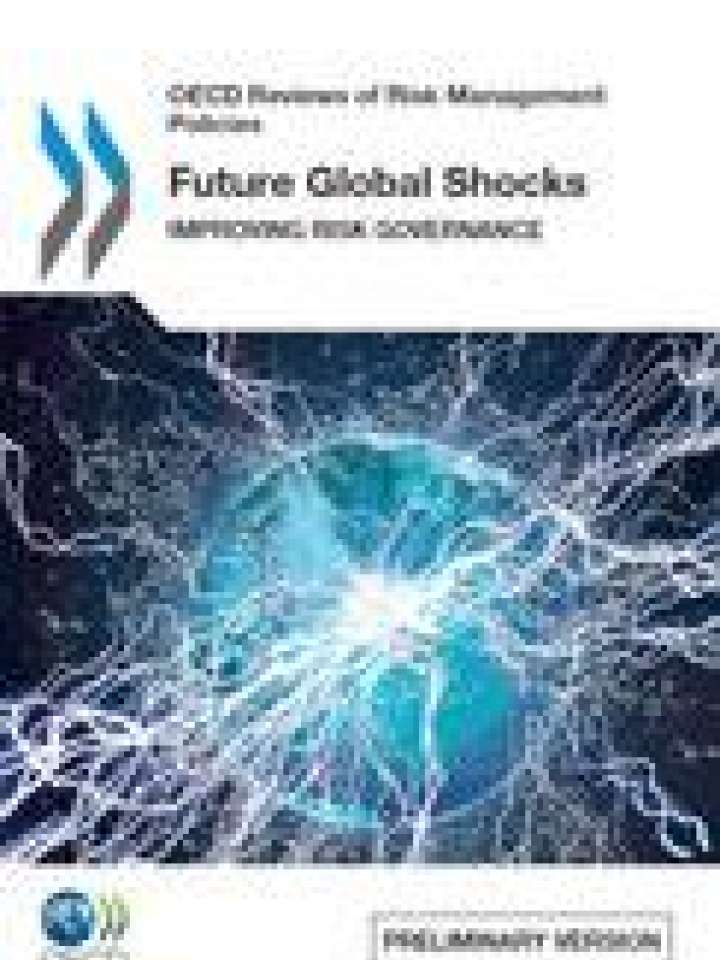OECD reviews of risk management policies: future global shocks - improving risk governance
Preliminary version:
This report provides strategic guidance to address systemic shocks, and outlines several common challenges confronting efforts to manage them. It explains that global shocks can arise from an event that impacts the entire world more or less at once, such as the collision of the earth with a massive asteroid, or they may result from more subtle events that begin locally and spread to distant points around the world - including 'natural disaster'. The report indicates gaps in various governance capacities and suggests courses of corrective action, ranging from the diversification and/or redundancy of complex systems where economically feasible, to the cultivation of societal resilience when they are not.
The report begins the next phase of OECD reviews of risk management policies. It draws primarily from analysis contained in five case studies on different types of events that could lead to global shocks, and a background paper that provides an overview of concepts, ideas, and examples of extreme events.
Contents:
Chapter 1. Definition and drivers of future global shocks
Chapter 2. Risk assessments for future global shocks
Chapter 3. Tools to prepare for future global shocks
Chapter 4. Emergency management of future global shocks
Chapter 5. Strategic approaches for managing future global shocks
Explore further
